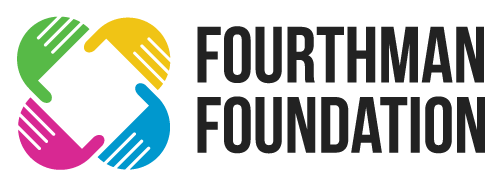“L’ LOVE Either way, Christ’s love controls us. Since we believe that Christ died for…
Tying Financial Freedom to the Rest of the Celebrations
Can you really turn your financial life around? If you are like most people, your finances are far from perfect. Whether it is credit card debt, living from paycheck to paycheck, an out-of-control budget, or the lack of a retirement plan, not being able to afford a vacation, your personal finances can probably use a little tuning up or a complete makeover.
Yet you ask, Can I really turn my financial life around? You bet, and you can do it without a fairy godmother. You can learn how to invest rather than spend and to live with a budget instead of from paycheck to paycheck. Moreover, you can choose to retire when you want, with just a simple, steady, financial plan put into action. Remember the quote, “Pray as if everything depended on God and work as if everything depended on you”? It’s time to put this quote into action.
What Is Financial Freedom?
According to the Fourth Man and Company, financial freedom is the state in which one is able to generate enough cash flow to take care of oneself, family, and other responsibilities. Robert Kiyosaki, author of the bestselling book ‘Rich Dad, Poor Dad’, defines financial freedom as having money work for you rather than you work for money, as well as building enough assets that can grow ahead of inflation by themselves. Bible says in 3 John 1:2 “Dear friend, I pray that you may enjoy good health and that all may go well with you, even as your soul is getting along well” Have you ever thought of this scripture in line of having financial freedom?
Financial Freedom and Life in general
Money is not a stand alone feature in our lives. It works in the context of relationships, eternal perspectives, spiritual disciplines, and life’s hurts, hang up, and habits. If you want to achieve true financial freedom, you must also understand and apply principles in 4 other areas of your life (Relationships, Eternal Perspectives, Recovery from life’s hurts, hang-ups, and habit and finally spiritual disciplines.
Money and Relationships
In a survey performed with the Harris Poll, 72% of people said they felt stressed out about money issues. In addition, 31% reported that it did cause problems or conflict in their relationships That stress may translate into serious problems affecting your relationship if differences can’t be worked out in a constructive way. Learning about relationships and how to be in community with others can significantly impact your journey to financial freedom.
Money and Recovery from life’s hurts and habits
It’s clear that money evokes strong emotions and everyone has deeply-held and often subconscious beliefs about money. But where do our feelings about money come from? Our thoughts about money often stem from childhood. How our parents handled money provides the foundation for how we may handle money. Learning about hurts, hang-ups, and habits (3Hs) based on understanding the loving power of Jesus Christ than a psychological theory can improve your chances of financial freedom. Celebrate Recovery follows a 12 recovery steps integrating biblical principles to help people overcome their hurts, hang-ups and habits.
Money and Eternal Perspectives
Everyday choices we make regarding money and possessions—which affect nearly everything we do—are of eternal consequence. Having an eternal perspective means understanding why Jesus constantly tried to get people to look beyond mortality and to think of this life in terms of where it fits in eternity.
Money and Spiritual Disciplines
Discipline is a necessary skill for proper financial management. Without it you will never acquire or accumulate anything. Without it you will never accomplish anything. Discipline is being able to say no when you need to and to be able to put money away instead of spending it. As we invest our energy into developing spiritual disciplines, we partner with God in our growth and transformation. Then we can grow in his grace and produce fruit.
THE FIVE STEPS
Set financial Goals by having a financial finish line: Having a financial finish line involves setting limits on one’s salary in the area of your spending, savings, and investing so that your remaining wealth can be invested achieving your life’s dreams. It’s scary to set financial finish lines when we’re told how much money we will need for big expenses like college, retirement and end-of-life care. I’m constantly tempted to save more just in case. But planning for the worst-case scenarios comes from a place of fear and anxiety. I want to make financial decisions from a place of contentment and joy.
When I die, a big bank account balance won’t be the legacy I leave behind. I’ll be most proud of what I achieved with the money entrusted to me during my lifetime. Financial finish lines will guide me there, and help me find the balance between saving and generosity.
Understand How Money Works: Money is a medium of exchange that allows people to get what they need. It multiplies if it is properly invested and not spent. It diminishes in value over time. Understanding how money works will help you on the path to financial freedom because you need to apply the principles of money if you want money to work for you.
Increase Your Networth: Net worth is assets minus liabilities. Simply put, it is what you owe subtracted from what you own. An asset is anything of value or a resource of value that can be converted into cash, while a liability is money you owe to another person or institution that must be paid. One increases net worth by increasing what one owns and decreasing what one owes. Increasing your value by increasing how you exchange time for money will also help you to achieve financial freedom quicker. If you earn more and have a financial finish line, then you do not have to put in a lot of hours to achieve your dreams.
Eliminate Debt (Spend Cash Only): A good debt is money you borrowed to build wealth or increase your net worth over time. On the other hand, bad debt is money you borrowed to pay for things that won’t improve your net worth. Use good debts to increase your net worth and stay away from bad debts
Save and Invest: Though saving and investing are used by some people to mean the same thing, there is a difference. We defined Saving earlier as setting money aside for use later. On the other hand, Investing involves buying assets such as stocks, bonds, mutual funds or real estate with the expectation that the value of the money invested will grow over time. Savings and investment are integral parts of achieving financial freedom.
Would it not be so wonderful to get to a place where you can:
- Provide generously for charity, take care of one’s responsibilities, have leftovers to invest and grow?
- Reach the stage, where others can speak of one’s wealth (Genesis 13:2)?
- Have a secured financial future for retirement, whether it is 30 years away or 13 years away?
Have options and choices others lack because their energy is devoted to toiling for money?
The benefit of financial freedom is that one can make life decisions without being overly stressed about the financial impact. Your money works for you rather than you work for money. Just as in the scenarios above, the path to financial freedom is neither about how much you earn, being lucky in life nor knowing all the short-cuts to getting rich quick. It doesn’t mean one will be free from responsibilities, rather having control over one’s finances is the fruit of hard work, sacrifice and time. It is a set of skills and principles one must master and practice. It is neither hereditary nor a fit of luck. We must have those skills to make as much as we can, spend as less as we can, save as much as we can, and have time to enjoy as much as we can.
I look forward to seeing you on the financial freedom train.


